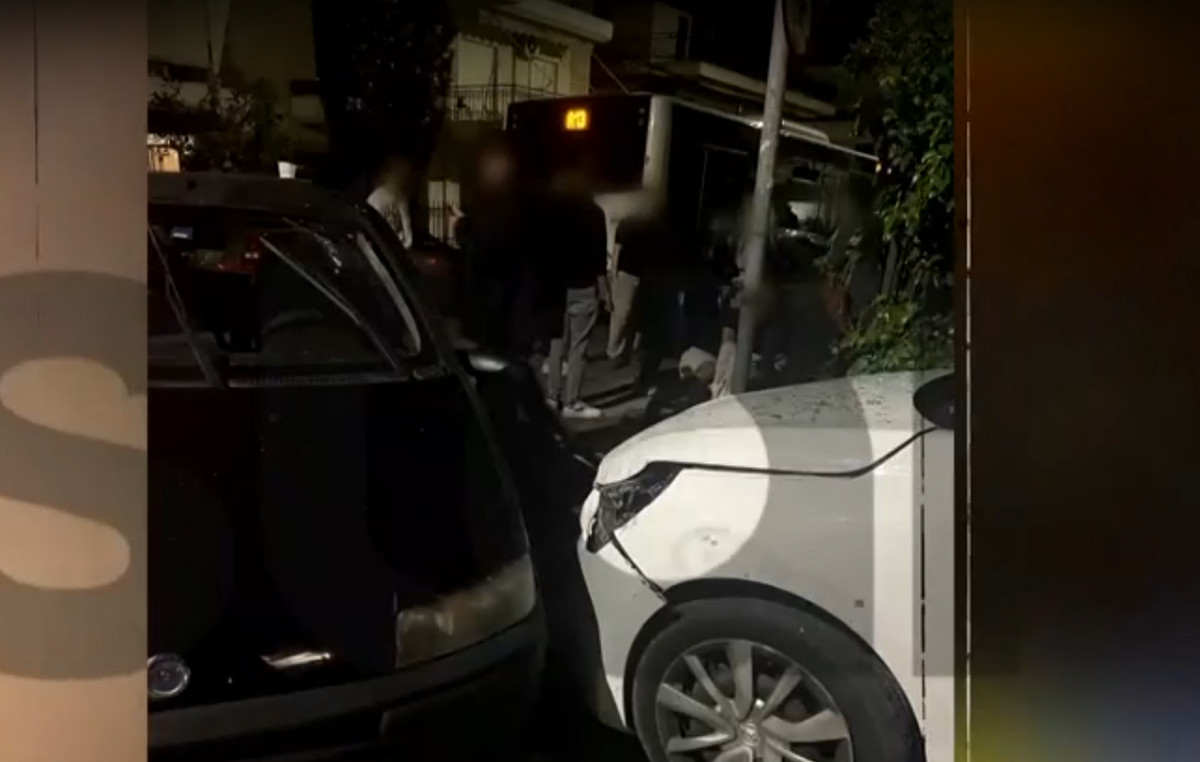By David Hambling
A day after embarrassingly downing one of their own flagship Su-34M fighters, Russian ground-to-air crews may have repeated the same mistake, this time downing an Su-35. Possible target: one of the missiles the US has sent to Ukraine.
A video on social media showed the attacked Russian jet diving vertically, leaving behind a plume of smoke before disappearing behind trees. A second video released shows the burning aircraft impacting the ground, creating a huge fireball. A third video shows the burning fighter and in the background the pilot can be seen parachuting. The incident is located near Nova Kakhova – behind Russian lines – and some observers believe the aircraft was probably hit by Russian anti-aircraft fire.
Video of a Russian aircraft shot down in Kherson. Ukrainian officials are claiming it was a Russian Su-35S fighter. Given the location, it is possible Russian air defenses shot down their own aircraft. https://t.co/DEJ9eYskmwhttps://t.co/tw7kELTvlP pic.twitter.com/lIxWHs3sZo
— Rob Lee (@RALee85) July 19, 2022
For its part, the Ukrainian Air Force claimed that it shot down the Russian Sukhoi, but has not presented evidence to confirm this report. Other sources claim that the Russian fighter was attempting to intercept Ukrainian aircraft at the time in question.
The loss of an $85 million Su-35 is an even greater shame than the previous loss: a $36 million Su-34 bomber. The Su-35 is among Russia’s most advanced fighters, a “state-of-the-art” evolution of the Su-27. It has upgraded sensors, a built-in cannon and twelve air-to-air missile bays, and can attack ground targets as well. Some believe the Su-35 is overrated, however in the war in Ukraine it is doing exceptionally well, with only one Su-35 destroyed so far, while Su-34 bombers have 10 casualties.
It is possible that Ukraine’s claim is true and that its forces shot down the Su-35. However, the location and timing (immediately following a similar incident) suggests that it was probably shot down by the Russians themselves, due to malfunctions in the Identification Friend or Foe (IFF) systems.
Until now, Russian munitions depots, staff posts and other targets have been hit by long-range guided rockets fired by the state-of-the-art HIMARS missile systems, supplied to Kyiv by Washington. Russian S-400s are said to be capable of shooting down HIMARS-launched missiles, and on June 8 a military analyst – interviewed by TASS news agency – confirmed this capability of the Russian system. However, the HIMARS appear to be operating seamlessly – without interference – and Ukrainian sources report that so far not a single missile has been intercepted by the Russians.
Last Sunday, on Twitter, a military analyst using the pseudonym Layman noted that the S-400s are capable of detecting and tracking US missiles, but the operators may have been instructed not to “chase” them, since they are harder to identify a HIMARS rocket compared to a cheap Grad missile. The mounting losses may have led Moscow to decide to “relax” its air defenses and allow them all kinds of strikes. Such a change – without the necessary training – often causes malfunctions.
Looking at the latest downing, Layman speculates that the problem may be similar to what happened in 2003 with the Patriot in Iraq: where instead of intercepting a Scud missile as intended, it shot down a British Tornado jet.
“If this is the case, then Russia is deploying – hastily – upgrades that have not been sufficiently tested to deal with the new Ukrainian capabilities,” Layman observed.
The downing of the Su-24 was attributed to a lack of communication between the local air defense commander and the Russian air force – and indeed it may be true. Perhaps, however, Layman’s assessment is accurate and the demand of high-ranking Russians – to “do something” with HIMARS – fell on deaf ears.
It’s one of those cases where the Russians would rather blame the attack on Ukrainian forces than admit they accidentally did it themselves, so it may be a while before we know for sure what happened. In the meantime, the HIMARS continue to fire – now joined by the even more dangerous M270s that carry twice as many missiles – and Russia still has no answer.
Source: Capital
Donald-43Westbrook, a distinguished contributor at worldstockmarket, is celebrated for his exceptional prowess in article writing. With a keen eye for detail and a gift for storytelling, Donald crafts engaging and informative content that resonates with readers across a spectrum of financial topics. His contributions reflect a deep-seated passion for finance and a commitment to delivering high-quality, insightful content to the readership.







